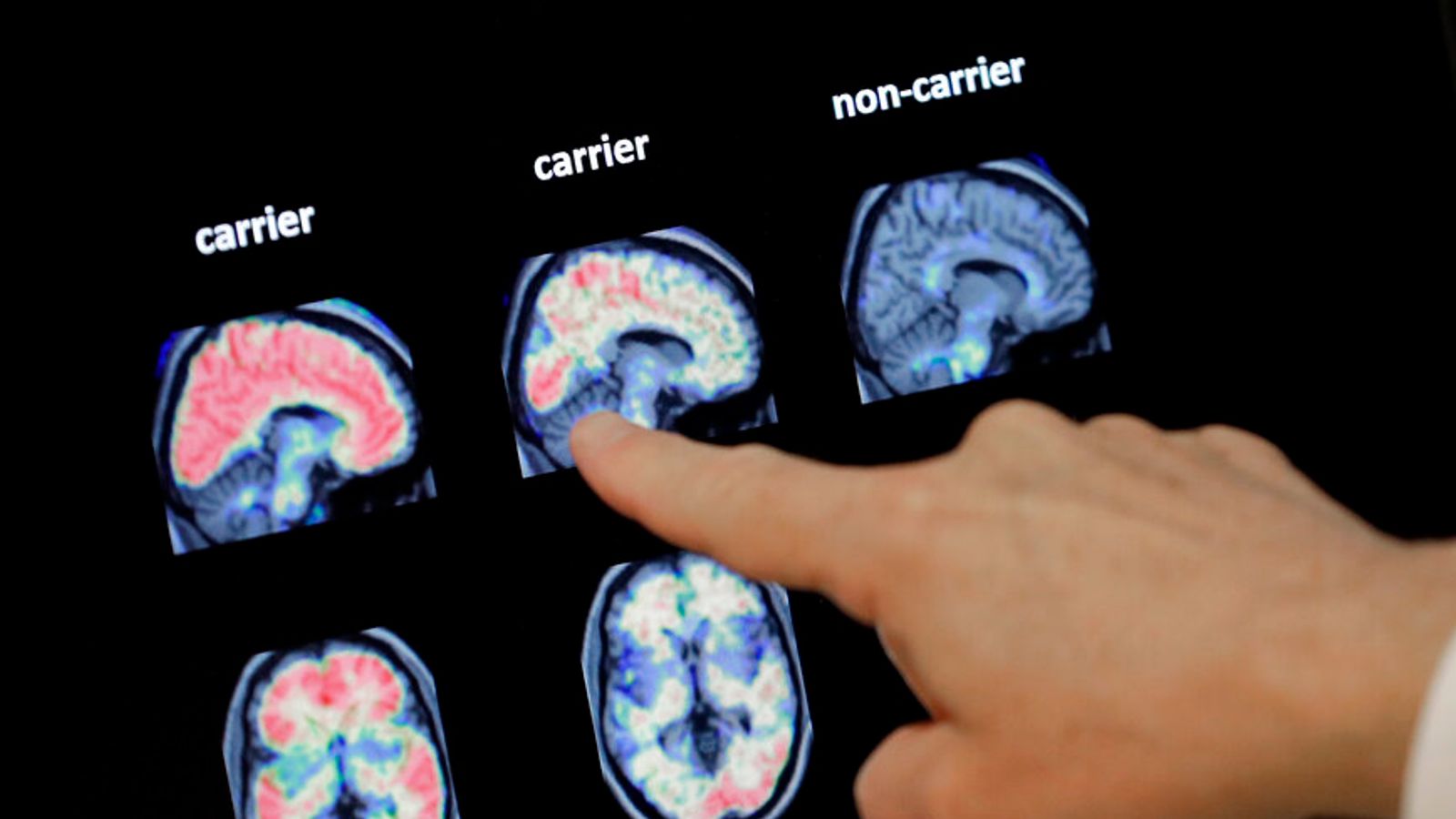New Alzheimer's drugs offer hope for bleak diagnosis but remain out of reach in UK
Estimates by Alzheimer's Research UK suggest 575,000 people in the UK would meet the treatment criteria used in the clinical trials of lecanemab and donanemab. But they need a diagnosis the NHS just can't deliver.

The NHS is nowhere near ready to provide the first effective Alzheimer's drugs to the huge numbers of people who need them.
Estimates by Alzheimer's Research UK suggest 575,000 people in the UK would meet the treatment criteria used in the clinical trials of lecanemab and donanemab.
These drugs work best when given at the very first stages of Alzheimer's, or earlier still when patients have what doctors call mild cognitive impairment.
But that needs a diagnosis the NHS just can't deliver at the scale needed.
These are potent drugs with a small risk of brain swelling and brain bleeds.
So you need to be absolutely sure that brain fog, memory problems and decline in thinking skills really are due to Alzheimer's before starting treatment. Otherwise you'd run the risk of side effects without any benefit.
But the amyloid protein, which builds up in the brain in people with the disease, can only be detected with certainty with a PET brain scan or by taking a sample of the spinal fluid.
Heart attacks increase risk of cognitive decline for years, study finds
There are only 69 PET scanners in England, Wales and Northern Ireland, with a few more in Scotland. But only 10% of their time is in diagnosing Alzheimer's; the bulk of their workload is in cancer.
And there aren't enough clinics in the UK with the skilled professionals needed to do lumbar punctures, the procedure for inserting a needle into the spine to remove a sample of fluid.
Drugs offer hope for bleak diagnosis
The first of the drugs, lecanemab, has been available in the US for some patients since January, with full approval later granted by the medicine's regulator.
But it could be early next year before the UK regulator decides whether to licence the treatment. And it would then need to be approved by NICE, the cost-effectiveness watchdog - in the US the drug costs around £20,000 a year.
It's frustrating for patients and their families.
These drugs offer some hope in what is otherwise a bleak diagnosis.
But they remain out of reach in the UK.
And by the time they are available some patients will have progressed so far that it may be too late for treatment.
-sky news







